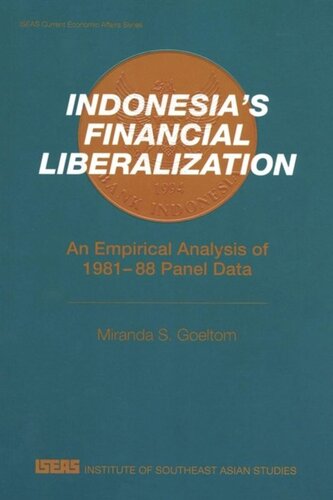

Most ebook files are in PDF format, so you can easily read them using various software such as Foxit Reader or directly on the Google Chrome browser.
Some ebook files are released by publishers in other formats such as .awz, .mobi, .epub, .fb2, etc. You may need to install specific software to read these formats on mobile/PC, such as Calibre.
Please read the tutorial at this link: https://ebookbell.com/faq
We offer FREE conversion to the popular formats you request; however, this may take some time. Therefore, right after payment, please email us, and we will try to provide the service as quickly as possible.
For some exceptional file formats or broken links (if any), please refrain from opening any disputes. Instead, email us first, and we will try to assist within a maximum of 6 hours.
EbookBell Team

4.4
12 reviewsUsing 1981-99 panel data on Indonesian manufacturing establishments and a survey of 2000 top business in Indonesia, Indonesia's Financial Liberalization analyses the consequences of financial liberalization on investment and allocation of credit, noting differential effects depending on size of firms, organizational form, and other categorizations. Using rigorous econometric tools, the conclusion derived is that although financial liberalization has increased borrowing costs, particularly for smaller firms, it has widened access to finance. The move from administrative-based to market-based allocation of credit has increased credit flow to firms that are more efficient, and these firms consequently have a higher concentration of investment.